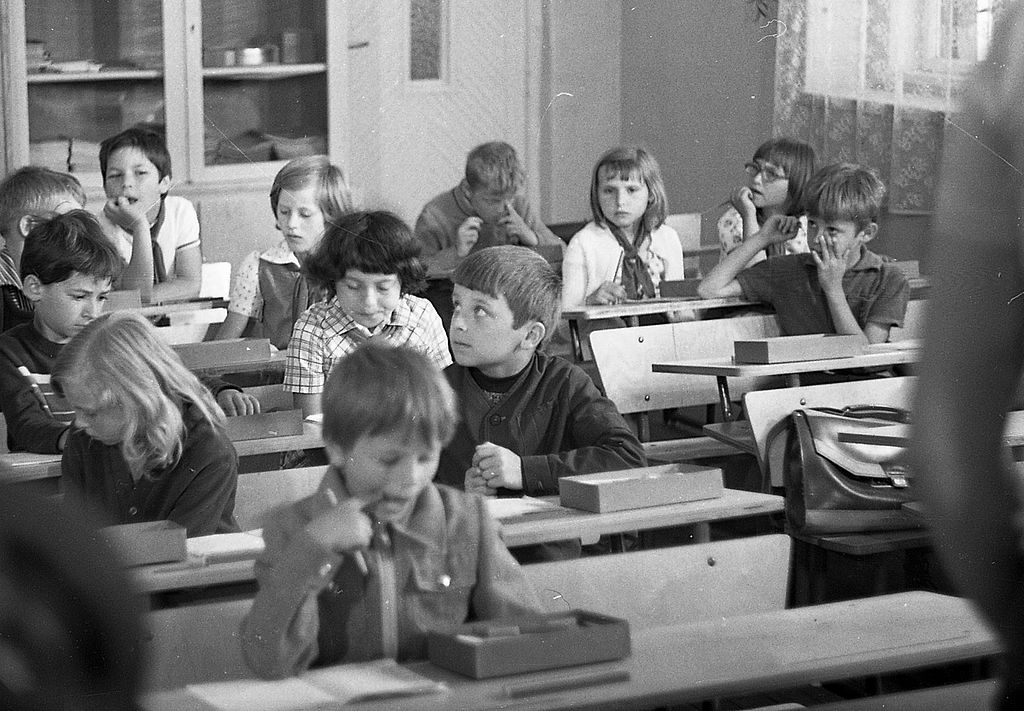
"Seven plus nine is not six"
Posted at 09:00 on 28 September 2023
I can't remember what the exact question was, but I do remember that it involved adding two three-digit numbers together. Let's just say it was 247 + 389. Which, as any reasonably intelligent seven year old should be able to work out, comes to 636.
Seven year old yours truly had worked this out, only to have it marked wrong.
Say what?!!?
I went over my working carefully. Seven plus nine is sixteen. Six in the ones column, carry one, add one to four plus eight gives thirteen. Three in the tens column, carry one again, add one to two plus three gives six. Six hundred and thirty six.
I wrote out the sum again, handed my work in again, and yet again it came back marked wrong.
I got hold of a pocket calculator when I got home. Much as it may be hard for some of my younger readers to believe, those were actually a thing when I was seven years old, though of course we weren't allowed to use them in class.
247 + 389 = 636.
I did the sum a third time, handed my work in again, and a third time it came back marked wrong. With the dreaded words "See me" in red pen next to it.
I duly went up to the teacher's desk.
"Seven plus nine is not six," she said.
I didn't know how to respond to that. I knew that seven plus nine is not six. But seven plus nine is sixteen. It still has a six at the end, you still write six in the ones column, you just have to carry one over into the tens column, and I had even written a little "1" there, as I had been taught to do, to show that that was what I'd done. But Mrs Lester was a rather stern kind of teacher and I was too shy to answer back to her, so I quietly returned to my seat feeling confused, not sure what to do next, and if truth be told, rather offended.
It's only recently, however, that I wondered if maybe she was actually trying to teach me something important. Something that every good teacher should be teaching their students.
Your teacher isn't always right, and when they aren't, you should challenge them.
One of the most important things that every teacher should be instilling into their students is critical thinking. Asking questions, fact-checking, and not swallowing everything you're being told hook, line and sinker are important skills.
Now from time to time I hear people claiming that they're "encouraging critical thinking" when in reality they are doing nothing of the sort. Pseudoscientists and conspiracy theorists are especially bad at this: they will proudly tell you that they are doing so because they are "questioning mainstream narratives." But in reality, all they are doing is swapping out "mainstream narratives" for their own particular brand of pseudoscience or conspiracy theories. If you start applying critical thinking to their own claims, their enthusiasm for the aforementioned critical thinking quickly evaporates.
If your aim in teaching "critical thinking" is simply to get your students to think like you, or to repeat exactly what you are teaching them, then you aren't teaching critical thinking at all; you're spoon feeding them. On the other hand, one way that you can tell that you are getting it right is that your students start challenging you.
Introducing the occasional mistake into your teaching material can be a good way to do this, but it needs to be done carefully. The mistakes need to be ones that you should reasonably expect your students to spot, otherwise you will be teaching them misinformation. You should also make sure that you are giving your students the confidence that they need to challenge you. Stern, strict, no-nonsense or authoritarian teachers probably won't be able to pull this off, especially with children who don't have a great deal of confidence to begin with. But the lesson is one that every good teacher should be teaching their students. Make sure that you're teaching them to think critically about what you yourself are teaching them---and that you're giving them the space and the confidence to challenge you when you get it wrong.
Featured image credit: Wikimedia Commons